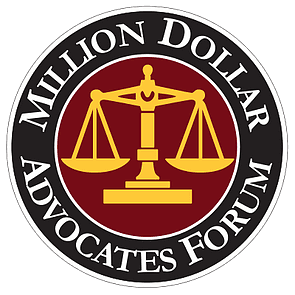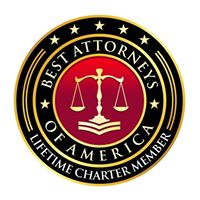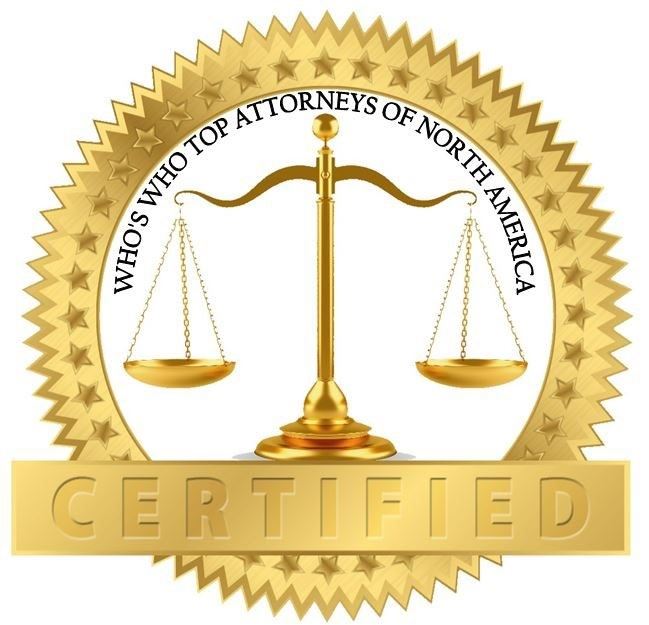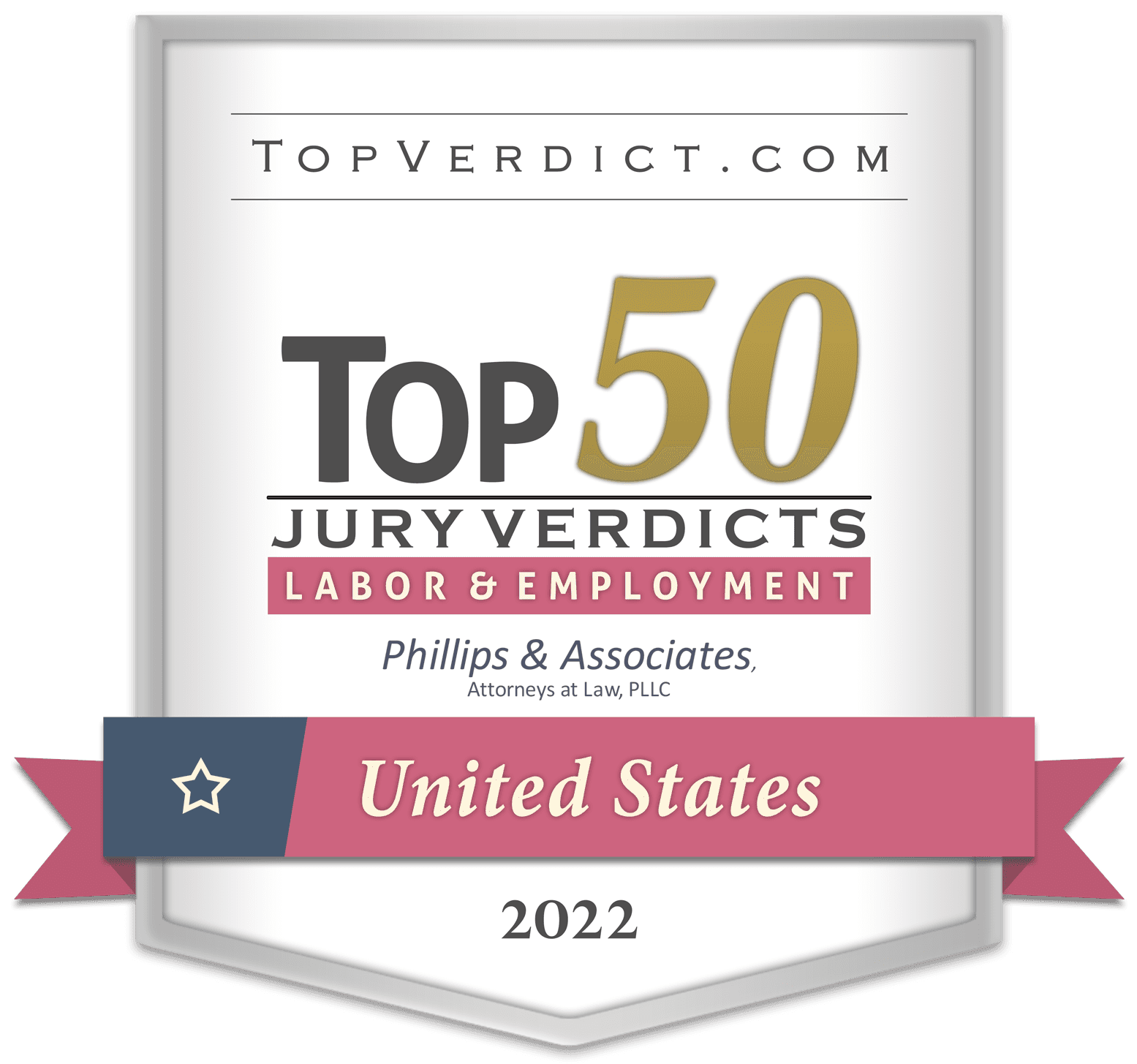
Sarbanes-Oxley Act Attorneys in New York
Whistleblower Lawyers Advising Employees in the Greater New York City Area
Many employees learn information about legal violations at publicly traded companies that they would not know but for their employment. However, in many instances, they are concerned about whether they will be able to keep their jobs if they report the wrongdoing. Under the law, they receive special protections against retaliation as whistleblowers. If you believe that you have a whistleblower protection claim under the Sarbanes-Oxley Act, you should contact the New York City whistleblower attorneys at Phillips & Associates.
Protections Under the Sarbanes-Oxley Act
The Sarbanes-Oxley Act of 2002 protects people who work for publicly traded companies and who let authorities know about violations of SEC regulations or any federal law violations that amount to fraud against corporate shareholders. Publicly traded companies are those companies that have a class of securities registered under section 12 of the Securities Exchange Act of 1934. Additionally, contractors, subcontractors, and agencies that work for publicly traded companies are covered.
Activity protected under Sarbanes-Oxley includes reports to federal regulatory agencies and law enforcement agencies. Moreover, it includes reports to your supervisor, company investigators, or Congress. You are also protected if you are an employee who testifies or who is engaged in regulatory proceedings or other shareholder fraud proceedings. After a 2018 Supreme Court ruling, Sarbanes-Oxley may protect more activity than does Dodd-Frank under certain circumstances.
People who report violations are known as whistleblowers. Under Sarbanes-Oxley, employees who engage in certain protected activities are whistleblowers. Employees can be current workers, or they may be former workers. To be protected as whistleblowers, they must report or assist in reporting corporate wrongdoing, such as securities fraud, mail fraud, wire fraud, bank fraud, SEC rule or regulation violations, or fraud against shareholders that is covered by Sarbanes-Oxley that they reasonably believe has happened. They may have filed, participated in, testified, or assisted with a proceeding that was previously or is about to be filed in connection with the wrongdoing.
It can be stressful to consider blowing the whistle on your employer about a legal violation. If you are a whistleblower, Sarbanes-Oxley prohibits your employer from retaliating against you. Retaliation includes all adverse decisions made with regard to your employment. It encompasses smaller events, but it can also include serious events like blackballing within the securities industry, demotion, harassment, or termination.
Under Sarbanes-Oxley, prior to suing in federal court, you will need to file an administrative complaint with the Secretary of Labor through the Occupational Safety and Health Administration (OSHA). Once you have filed the complaint with OSHA, you must wait 180 days, and then you can proceed to federal court under 18 U.S.C. § 1514A. An employer is not able to enforce waivers of whistleblowers' rights or remedies, and it cannot require arbitration of claims of retaliation under Sarbanes-Oxley under an agreement signed prior to the dispute.
Whistleblowers who prevail under Sarbanes-Oxley can recover any and all relief that is needed to make the employee whole. This may include back pay, reinstatement, attorney fees and costs, and special damages. Reinstatement is preferred over front pay, but there are situations in which front pay is awarded instead of reinstatement. Special damages may include personal humiliation, mental anguish and suffering, reputational damage, and other noneconomic harms. For example, if you were blackballed from an industry, your reputation has been damaged, and it may impair your future earning capacity. Courts have stated that employees in this situation cannot be made whole without compensation for the lost future earnings that they would have gotten if not for the employer's illegal activity.
Get Advice from a Whistleblower Lawyer in New York City
It is hard for an employee to confront his or her employer. If you are concerned about blowing the whistle on your employer under the Sarbanes-Oxley Act, you should consult an experienced employment litigator in New York City. It can be helpful to consult a lawyer even before you report the violation, and it is important to have representation when you file an initial administrative complaint. Contact Phillips & Associates at (866) 229-9441 or through our online form for a free appointment. We handle employment litigation in the boroughs of the Bronx, Queens, Brooklyn, and Manhattan; the counties of Westchester, Nassau, and Suffolk; a well as New Jersey, Connecticut and Pennsylvania.
Statute of Limitations
Dedicated Whistleblower Attorneys Serving New York City and Surrounding Areas
If you believe that your New York employer has committed fraud against the government or other legal violations or misconduct, and you are considering filing a qui tam action or reporting the fraud, it is crucial to be aware of the statute of limitations. There is a limited window of time within which to take action to file a qui tam claim, and there is also a limited window of time within which to file a retaliation lawsuit, should you need to file it. Failing to take action within the statute of limitations specified under the statute can result in losing the right to receive a financial reward for reporting fraud, or being barred from filing your retaliation claim. The New York City whistleblower lawyers at Phillips & Associates can help you protect your rights.
Statutes of Limitations
Some employers take retaliatory or discriminatory actions against employees for reporting misconduct. There are different statutes of limitations to bring retaliation lawsuits under the various whistleblower statutes. In some cases, there are time limits with regard to obtaining an award for blowing the whistle as well, and it can be helpful to consult with an attorney once you learn of an employer's misconduct to make sure that you follow the rules and procedures set forth under the appropriate statute or statutes.
The False Claims Act
The False Claims Act allows a whistleblower to file a qui tam lawsuit against someone committing fraud against the government and possibly receive part of the recovery gathered from that lawsuit as a reward for whistleblowing. The general statute of limitations for filing a qui tam lawsuit is six years after the date on which a false claim was made. There are exceptions to this statute of limitations. The statute of limitations for filing a qui tam claim is three years after the appropriate federal official was notified of the possibly fraudulent activity. You definitely cannot file more than 10 years after the fraud happened. However, courts have held that the statute of limitations for whistleblower claims has been tolled under the Wartime Suspension of Limitations Act of 2002 when military actions were authorized in Iraq. That means that a court may find that the clock has stopped running on the statute of limitations for FCA claims during periods of war.
The statute of limitations to file a lawsuit if your employer retaliates against you under the False Claims Act is three years.
Sarbanes-Oxley Act
If you have been subject to retaliation under the Sarbanes-Oxley Act as an employee of a publicly traded company, you must file a written complaint with the Department of Labor within 90 days of learning of the discrimination, harassment, or retaliation to which you were subjected.
Dodd-Frank Act
If you are an employee with concerns about securities laws violations, you should go directly to the SEC with your concerns.
The Dodd-Frank Act's statute of limitations for retaliation is more similar to the statute for the False Claims Act than the statute for Sarbanes-Oxley. Under Section 21F, you cannot file a retaliation action more than 6 years after the retaliatory acts. An employee also can file a retaliation action up to 3 years from the date when material facts were known or reasonably should have been known by the employee, but not more than 10 years after the violation happened. The Dodd-Frank Act has a two-year statute of limitations if you wish to bring a retaliation lawsuit based on the Commodity Futures Trading Commission's whistleblower program.
Learn About Your Options by Consulting a New York City Attorney
It is often important to work with an attorney in connection with blowing the whistle on your employer, and it is crucial to consult an attorney if you have been subjected to retaliation for reporting your employer for misconduct. If you are concerned about the statute of limitations for a whistleblower claim involving a New York City workplace, you should consult an experienced employment litigator. You can contact Phillips & Associates at (866) 229-9441 or through our online form for a free consultation. We handle employment disputes in the boroughs of the Bronx, Queens, Brooklyn, and Manhattan; the counties of Westchester, Nassau, and Suffolk; as well as New Jersey, Connecticut and Pennsylvania.
What Our Clients Say:
-
"He covered every angle and was able to help me with my dispute. I would recommend Jesse Weinstein and Phillips and Associates in the future to anyone."
- Margaret -
"Being in the restaurant industry for more than 30 years I can say that this law firm is the number one choice for workers in the restaurant business that need to sue their company for wrongful termination."
- Massimo -
"He was extremely patient and understanding throughout the process and remained professional and consistent even when I could not. I really felt like he had my back and I didn't have to worry."
- Karen



.2306081245574.png)






